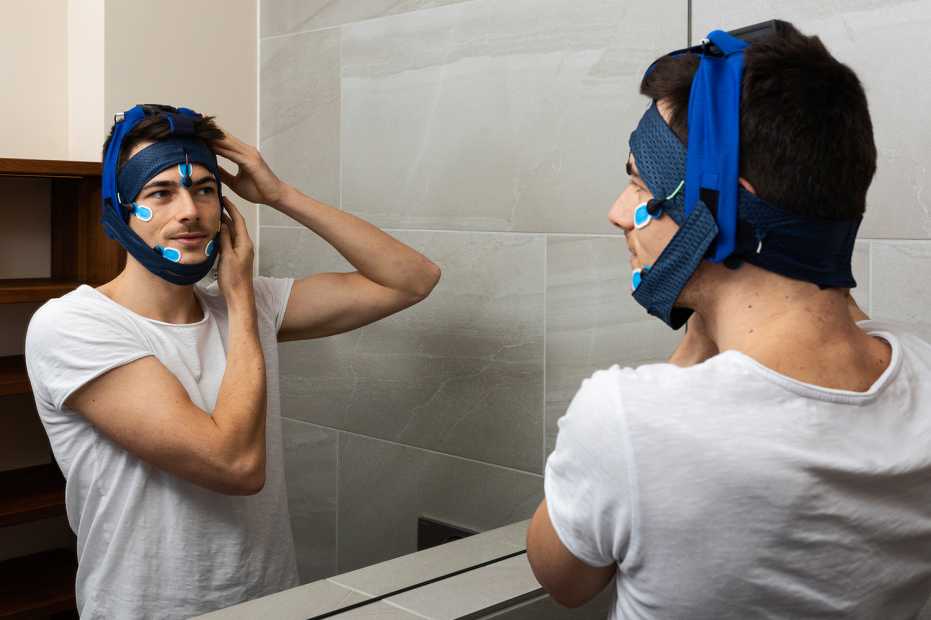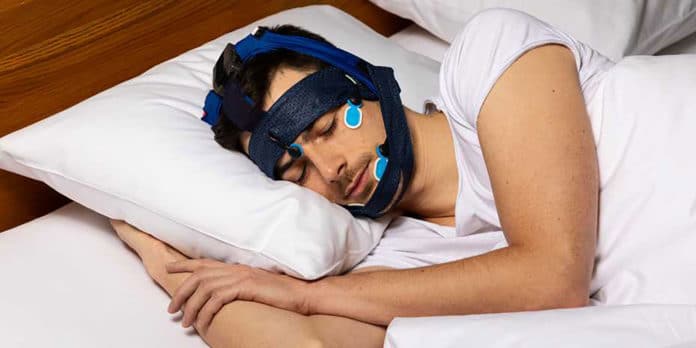The basic and applied research in promoting the importance of sleep has increased substantially in the last decades. However, its translation into clinical applications with access to a broader public has lagged behind.
Sleep’s restorative function is closely linked to slow waves. These slow waves are brain activity patterns that characterize deep sleep. Scientists have shown that slow waves can be increased by playing precisely timed sounds through earphones while sleeping.
As part of the SleepLoop project, scientists at ETH Zurich have developed a mobile system to enhance deep sleep. This mobile system can be used at home to promote deep sleep through auditory brain stimulation.
The system includes a headband that a user needs to put on and wear during bedtime throughout the night. This headband is equipped with electrodes and a microchip that constantly measures the brain activity of the person sleeping.
Data from this is automatically analyzed in real-time on a microchip using custom software. Once the user shows slow waves in the brain activity, the system triggers a short auditory signal (clicking) that helps synchronize the neuronal cells and enhance the slow waves.
Interestingly, the auditory signal doesn’t wake the user up.
Scientists at ETH Zurich and University Hospital Zurich conducted a clinical study with this device for the first time. The study involved 33 participants aged between 60 – and 80 years old.

Participants wore the device every night for a month. The auditory stimulation was given every night for two weeks. Neither the subjects nor the researchers knew which two weeks the acoustic signals were played and two they were not.
Caroline Lustenberger, group leader at the Neural Control of Movement Lab, who led the study, said, “This worked very well. We had surprisingly little data loss, and the participants rated the device as user-friendly.”
Sixteen participants in the study showed that it was indeed possible to enhance the slow waves through auditory signals during deep sleep in most participants. However, the individual differences were extensive, with some of the subjects responding very well to the stimuli while others responded minimally or not at all.
Lustenberger said, “Whether a person reacted to a stimulus did not depend on their well-being during the day. Some people generally responded well to the stimuli and clearly showed enhanced slow waves, while others showed no response, regardless of their daily well-being.”
Using these individual differences, scientists could better predict how a given individual will respond to the auditory stimulus. This, in turn, helps them optimize and improve the performance of SleepLoop.
Walter Karlen, who developed the technology at ETH Zurich, said, “This is a medical device, not just a wellness consumer product you can order online when you have trouble sleeping. Use of the device must be medically indicated and supervised by a doctor.”
Journal Reference:
- Lustenberger C, Ferster ML, Huwiler S. et al. Auditory deep sleep stimulation in older adults at home: a randomized crossover trial. Commun Med 2, 30 (2022). DOI: 10.1038/s43856-022-00096-6
